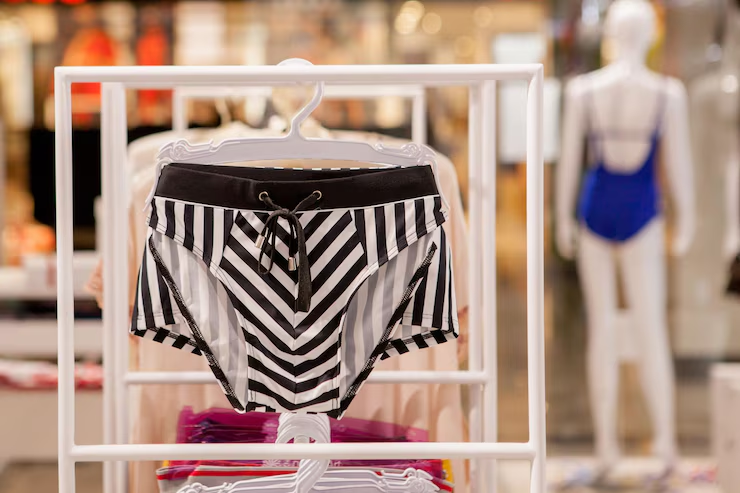How to Choose the Right Wholesale Underwear Manufacturer for Your Brand

Selecting the right wholesale underwear manufacturer is a critical decision for any clothing brand. Whether you’re launching a new collection or scaling your existing line, the right partner ensures your products meet both quality and customer expectations. From fabric choice to communication style, several factors shape this partnership. This guide will help you understand what to look for so your brand can grow with confidence.
Understand What Your Brand Really Needs
Before approaching any manufacturers, take time to clearly define your product goals. Every brand has its own identity, and the type of underwear you want to offer should reflect that. Are you targeting everyday essentials, performance wear, or premium intimate apparel? Each category comes with its own material and design needs.
Think about your product range and the variety you plan to include—briefs, boxers, thongs, shapewear, or seamless designs. Each one may require different stitching methods, patterns, and fabrics. If your brand values sustainability, you might also be interested in organic cotton or recycled materials. All of these details should guide your search for a manufacturer with the right capabilities.
Also, consider your expected order size. Some manufacturers specialize in large production runs, while others may be more flexible with smaller quantities. If you’re a startup, working with a supplier that accepts lower minimum order quantities (MOQs) might be more manageable. Knowing this early on will help filter out options that don’t match your current business stage.
What to Look for in a Manufacturing Partner
Experience and specialization matter. A manufacturer who understands the underwear market will have developed techniques and infrastructure for producing items with the comfort and durability your customers expect. Look through their past work—many manufacturers showcase previous collaborations or product samples. This can help you see if their style and standards align with your vision.
It’s also important to know what type of support they offer during the design and development stages. Some may help you create tech packs or offer prototyping services, which is especially helpful if your designs are still evolving. Even factors like their familiarity with elastic types, waistband printing, or gusset construction can influence the final product’s quality.
If possible, request a sample. A physical sample gives you the chance to inspect stitching quality, stretch, fabric softness, and how well the item holds its shape after wear. This hands-on test will tell you a lot more than photos or specifications alone.
Key Questions to Ask Before Committing
Before entering into an agreement, ask the following:
- Do they maintain consistent sizing and fit across all batches?
- What are their minimum order quantities, and can they adjust them if needed?
- How long is the typical lead time for production and delivery?
- Are they open to small-batch production or sample runs?
Asking these questions will help set clear expectations and avoid future challenges. For example, if your brand relies on regular new drops, you’ll want a manufacturer with reliable turnaround times. Or, if you’re still testing the market, flexibility with batch sizes might be a deal-breaker.
Communication is also key. Make sure they are responsive and clear in their replies. You’ll want a team that is easy to talk to, especially when discussing updates, revisions, or delays.
Test Their Communication and Willingness to Collaborate
An often-overlooked but crucial part of working with a manufacturer is communication. Smooth interaction makes the entire production process easier. Early in the conversation, pay attention to how promptly they respond, how thoroughly they answer your questions, and how willing they are to work through adjustments or feedback.
Manufacturers who understand small business needs or early-stage brand challenges tend to offer more support. They may help you refine your design, improve material choices, or offer cost-saving suggestions that still meet your quality standards.
It’s also helpful to ask how they handle issues if something goes wrong. Every production run may have small variances, but how the manufacturer deals with these makes a big difference. Do they take responsibility and offer solutions? Or do they shift the blame? A good partner is one that communicates clearly and wants the product to succeed as much as you do.
Don’t Overlook Quality Control and Ethical Practices
Beyond design and production, a strong quality control process is essential. Quality control ensures that each unit meets your brand standards and reduces the chances of customer complaints or returns. Ask if the manufacturer inspects items before packaging, how defects are handled, and whether they follow internal checks at different stages of production.
Certifications also matter. If your brand focuses on ethical sourcing, transparency, or eco-conscious values, find out whether the manufacturer holds relevant certifications. Labels like OEKO-TEX®, GOTS, or WRAP show that they meet safety and ethical labor standards. These not only reflect your brand’s values but also build trust with your customers.
Even if certifications aren’t a top concern for you right now, manufacturers who hold them are usually more established and have better quality and process controls in place.
Final Thoughts
Finding the right wholesale underwear manufacturer is more than just comparing costs. It’s about building a long-term relationship with someone who can grow alongside your brand. By understanding your own needs, doing research, asking the right questions, and evaluating their communication and quality practices, you’ll be in a strong position to choose a partner that fits your goals.
The time you invest now in finding the right manufacturer will pay off in the form of better products, smoother processes, and a brand your customers can trust.



